The American Government Should Buy Spirit Airlines
Or taxpayers could keep bailing out the airlines again and again. Either way.
Earlier this year, I published my first policy white paper. It was a top-to-bottom argument outlining why and how the United States government should nationalize an airline and run it as a public good. The premise is simple. Americans agree that commercial air travel sucks. A recent study found only 22% of people prefer flying over driving.1 This isn’t surprising, as everyone I know loathes having to pay exorbitant airline tickets, haggle over baggage fees, and cram into an economy class seat not too different from a CIA torture position.
To rub salt in our wounds, America’s uniquely horrible flying experience is unnecessary. Airlines are not so profit-thin that they must overfill flights and hide baggage fees to stay operational. On the contrary. In 2023, U.S.-based airlines reaped just under a trillion dollars in revenue and netted $7.8 billion in profit,2 a gargantuan sum that is the product of explicitly cartelian behavior. To the detriment of your bank account, airlines operate as one big price-fixing conglomerate. Between 1960 and 2020, forty-six airlines merged into “The Big Four” (American Airlines, Delta, United, and Southwest), which make up over 80% of domestic air travel. With so few competitors, it’s easy for airlines to maximize profits by choosing not to compete with one another.
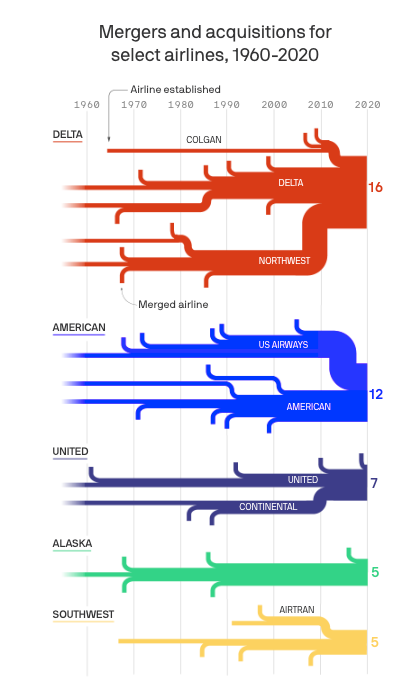
While oligarchical price fixing conjures the image of secret handshakes in smokey backrooms, the reality is more boring and depressing. With little pushback from the regulators, modern airlines run their cartel in full public view. The air industry gathers annually for the International Air Transport Association meeting (IATA), a conference The New York Times called a place of “classic oligarchy speak.” At the IATA, executives routinely discuss keeping their prices “disciplined,” another word for fixed. As antitrust educator Christopher Sagers described the IATA:
“They (the airline executives) are all but saying you (the other airlines) need to limit output to keep up prices.”
This is why, no matter how much searching you do across travel booking sites, you rarely find a low-cost flight that doesn’t require waking up at 3 a.m.
My solution to this problem is simple. The United States government should create a public airline to facilitate at-cost air travel. Instead of trying to maximize profit by increasing fares and worsening the flying experience, a public airline could provide adequate, comfortable flights for no more than the cost of creating them. Not only would this give consumers an affordable option, but it would put downward price pressure on the private airlines. Not wanting to be outdone by a competitor that offered lower prices and prioritized consumer welfare, American, Delta, Southwest, and United would be forced to lower their fares and cut the bullshit of charging you $7 for a blanket in order to compete. The federal government is already heavily involved in all aspects of air travel, from security, flight planning, safety inspections, fuel subsidization, airport construction, and more, making a public option airline a natural evolution of the industry.
You can read the full paper, here.👇
When I published this proposal, I provided two options for the U.S. to create a public airline. It could either:
Build an airline from the ground up, or
Nationalize an existing airline following an industrial bankruptcy.
Airlines have requested public bailouts twice this century—the first after 9/11 and the second during COVID. The COVID bailout was a mask-off display of the insanity of American capitalism, as the airlines received over $54 billion and only had to pay 26.2% of it back. That means you, the American taxpayer, handed these companies $39.852 billion, all so they can continue to charge you when your children need a mid-flight bottle of water. Instead of continuing to pump tax dollars into some of the most predatory companies on the planet every time there’s a downtick in air travel, I proposed the U.S. government buy an airline instead of bailing it out. As a public good unconcerned with shareholders, this U.S.-owned airline could withstand years of decreased demand to remain operational when the public is ready to travel again.
At the time, a bankrupt airline looking for a buyer was purely hypothetical. However, as Spirit Airlines filed for Chapter Eleven bankruptcy in mid-November, this is no longer a thought experiment: The United States Government has the opportunity to, and absolutely should, purchase Spirit Airlines and run it as a public good. Here’s what that would look like.
In Good Spirits
Following its bankruptcy announcement, Spirit Airlines filed a Form 8-K with the Securities and Exchange Commission. The form claimed Spirit had a market capitalization of $448 million (the total value of all Spirit Airlines stock) and had $579.7 million in debt.3 As a result, Spirit’s stock (ironically named “SAVE”) was delisted from the New York Stock Exchange and became a “penny stock,” the term for high-risk, low-value options traded on the OTC Pink Market. This re-categorization makes it the perfect time for the United States government to buy Spirit Airlines.
As of noon on Monday, December 2nd, Spirit Airlines is being sold between .64¢ and .67¢ a share, putting the company’s actual market capitalization at $78.5 million. (You can view Spirit’s real-time stock value here.)
Assuming a buyer would take on Spirit’s $579.7 million in debt, it would cost the U.S. government approximately $658.2 million to purchase the entire airline and pay off its liabilities. For the “But how are you going to pay for it?” crowd, I’ll remind you the airlines got a $40 billion handout just four years ago, so I’m sure the government can find a fraction of those funds somewhere. To put this cost in perspective, it would be less than the $680 million in bombs Biden recently gave Israel, despite the administration’s faux threat to cut off weapons shipments if Israel did not comply with U.S. humanitarian law.4 Given the flippancy in which the U.S. spends much greater sums, the cost of buying Spirit is not an issue.
Once Spirit Airlines was purchased, it would be straightforward for the government to get it up and running. The airline would become a state-owned enterprise (SOE) fit with its own board, CEO, and corporate hierarchy. On the surface it would look and work no different than any other privately owned airline. You’d book a trip on Expedia, check your bags at the front of airport desk, and drop by Hudson News on your way to the gate. The only difference would be what happens behind the scenes. Instead of a do-nothing capitalists profiting off of you, the airline would be run by the government. Without the need to profit, the newly-public Spirit Airlines would be focused on ensuring American citizens can travel across the country as pleasantly and at as cost-effective as possible.
A government-run airline sounds quite radical to American ears. But by global standards, it is anything but. As transportation is pivotal to any society, many national governments already operate their own airlines. New Zealand, Finland, Malaysia, and China are just a few of the states that hold majority ownership in at least one airline, ensuring that the interest of their citizens are prioritized over corporate greed. It’s no coincidence that these state-owned airlines were rated the most secure in the Ishka Vulnerability Matrix, which categorized airlines based on their likelihood to crash during COVID. Publicly owned airlines filled the most reliable position on the chart, while privately owned airlines were ranked as the most-vulnerable to crash.
To the capitalist mind, the proposal for the United States to buy Spirit Airlines will be scoffed at and derided as “socialism.” To be clear, a state-run airline is socialist, as it is the collective ownership of a business. The stakeholders, the American people, would own Spirit Airlines through their government, as opposed to the capitalist model of a private owner operating it exclusively for profit, not consumer welfare. But while this proposal is socialist, it is also common sense.
Spirit’s bankruptcy is yet another instance of irrefutable evidence that capitalism is doomed to fail. America’s socio-economic mantra that private economic action will be more effective, efficient, and prosperous than collective, state economic action is a lie. It was concocted by the bourgeoise class to persuade working Americans that being exploited was in their interest, as well as placate the egos of the societal parasites who demand to be told they’re good people for ripping off the rest of us. While it is not the only example of America’s infantile economic religion, the routine bail outs, price fixing, and state-protected monopolies of the air travel industry are the most prominent failure of this ideology. Instead of continuing this clearly-defunct cycle, the American government should make the right choice and turn Spirit Airlines into a public good.
They say the definition of insanity is doing the same thing while expecting different results. That sure sounds a lot like capitalism.
If you appreciated this article, please like (click the ❤️) and subscribe to support my work. JoeWrote is entirely reader-funded. So if you get at least one coffee cup worth of value from my work a month, please consider becoming a premium subscriber.
Thank you!
In Solidarity — Joe
https://wmgk.com/2024/04/15/people-prefer-road-trips-over-flying/
https://www.bts.gov/newsroom/us-airlines-gain-78-billion-2023-increase-over-2022
https://www.investing.com/news/sec-filings/spirit-airlines-reports-accelerated-debt-due-to-chapter-11-filing-93CH-3747922
https://www.aljazeera.com/news/2024/11/27/biden-oks-680m-israel-arms-sale-despite-new-gaza-ceasefire-push-reports


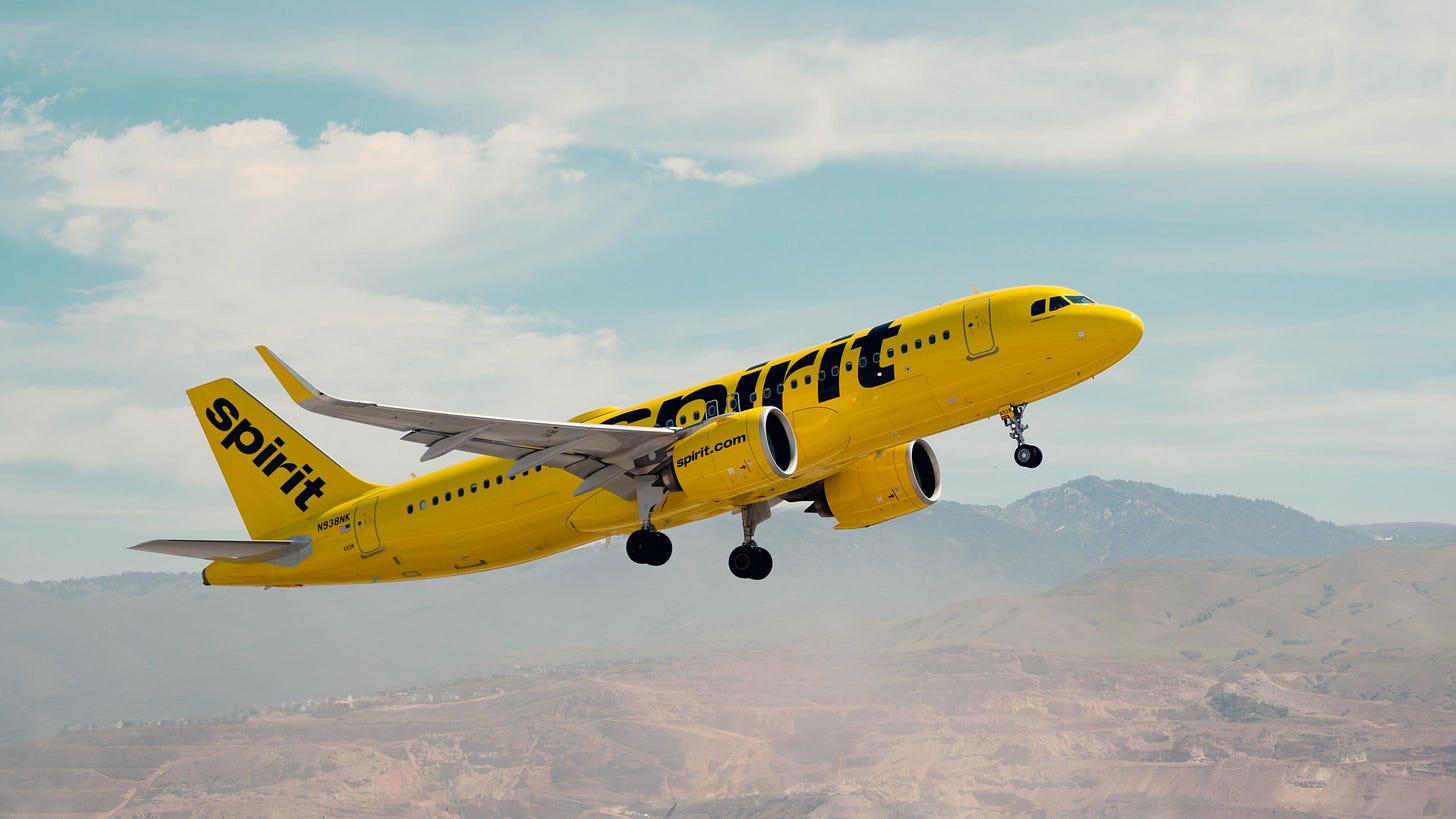
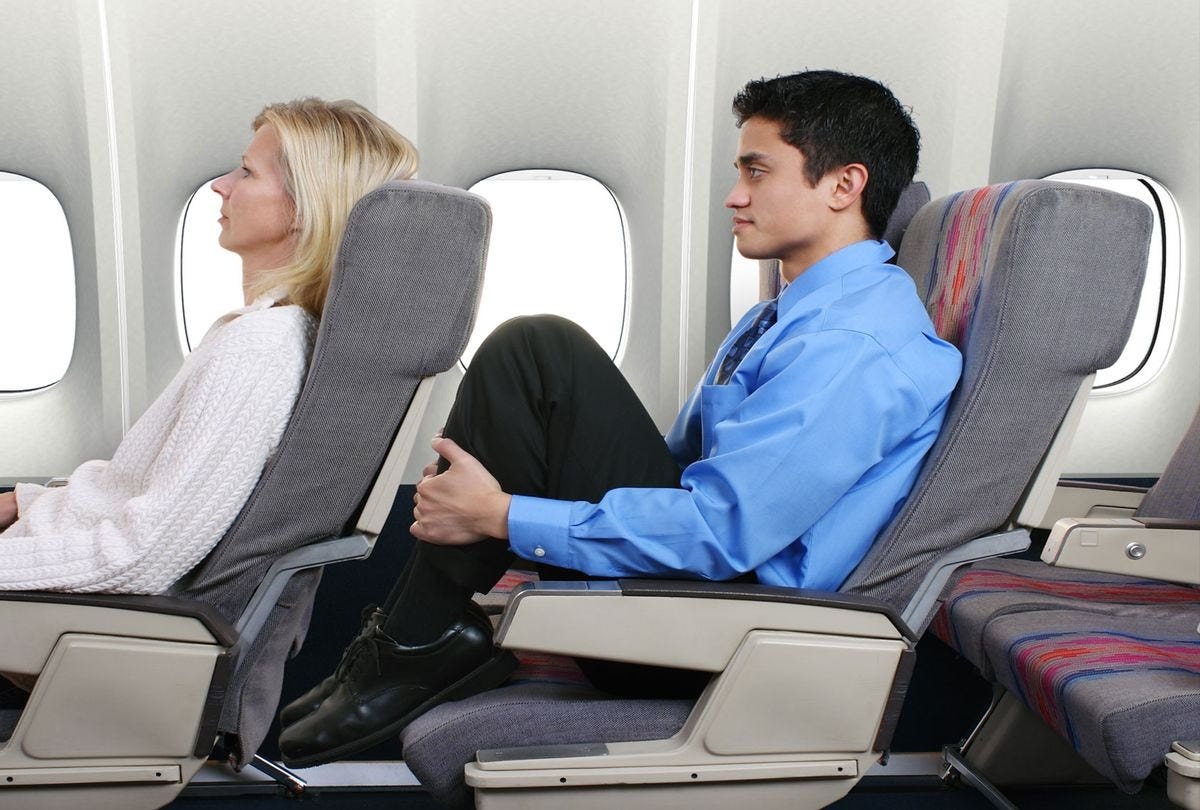
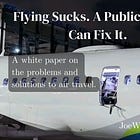
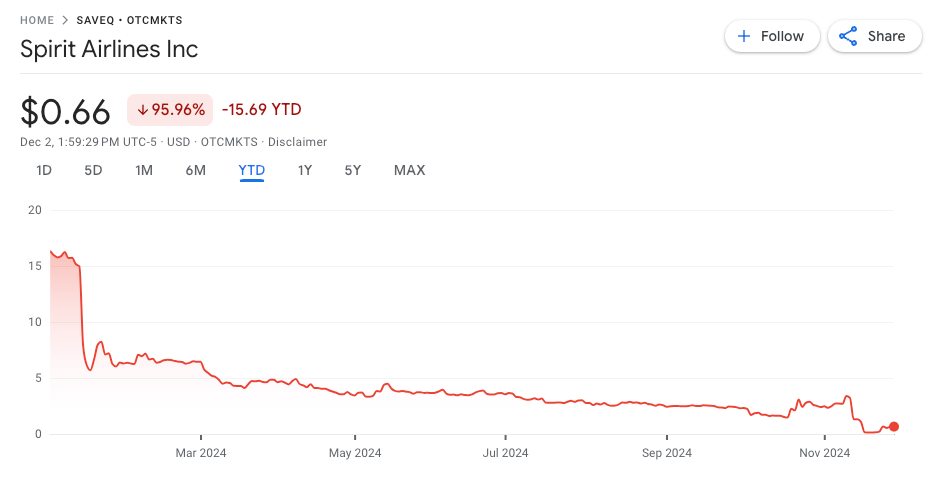
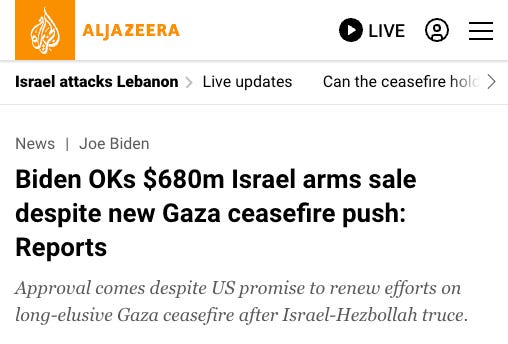
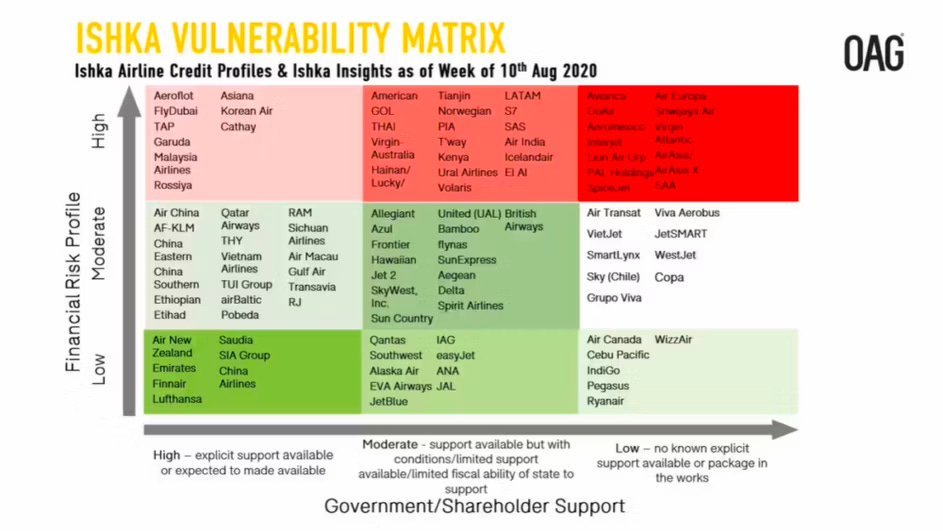
To the people who scoff at socialism as Unamerican; I want to know what is so very American about the nation's population having their tax dollars used to repeatedly bail out every type of corporate malfeasance and bad acting? Why are so many people unbothered by these companies getting their own exorbitant forms of welfare from both state and federal agencies yet paying little to no taxes often themselves?
It's nonsensical to me that underwriting bailouts for the already rich yet criminally reckless is seen as somehow more moral than helping individual people with dire circumstance often brought on by the same asshole suits we give all the money we're not spending on whatever the fuck the DOD does spend our money on. We're not safer. We're not happier. We're not healthier. If THAT'S what being American is, perhaps we need to rethink it.
And rebrand the airline Air America, because Amtrak and Aeroflot are already taken.